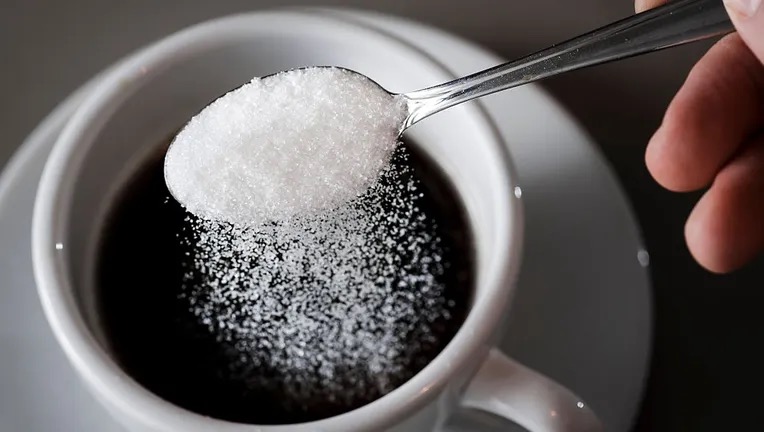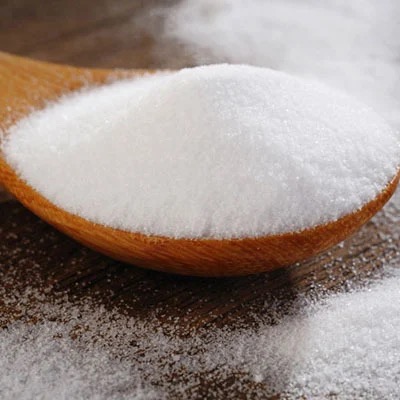







Content Menu
● Can Sucralose Cause Bloating?
>> How Does Sucralose Cause Bloating?
>> Impact on Gut Microbiota and Dysbiosis
>> Inflammation and Gut Barrier Function
>> Alteration of Gut Hormones Regulating Digestion
>> Fermentation and Gas Production
>> Individual Sensitivity and Consumption Levels
● Other Health Concerns Related to Sucralose
>> Toxic Compounds Formation When Heated
>> Effects on Glucose Metabolism and Insulin Sensitivity
>> Potential Links to Other Digestive Symptoms
● Practical Considerations for Consumers
● Frequently Asked Questions (FAQs)
>> 1. Does sucralose cause bloating in everyone?
>> 2. How does sucralose affect gut bacteria?
>> 3. Can bloating caused by sucralose be avoided?
>> 4. Is it safe to cook or bake with sucralose?
>> 5. Are there natural alternatives to sucralose that don't cause bloating?
Sucralose, a popular artificial sweetener, has become a common ingredient in a wide range of food and beverage products due to its intense sweetness and low-calorie profile. It offers an appealing alternative to sugar for people aiming to reduce caloric intake or manage blood sugar levels. However, as its consumption has grown, so have concerns about its potential effects on digestive health, especially bloating. This detailed article explores whether sucralose can cause bloating, how it interacts with the digestive system, and what the implications are for consumers. We also discuss other potential health effects and offer guidance on its use.

Sucralose is a synthetic sweetener created by chemically modifying sucrose, the common table sugar. It is about 600 times sweeter than sugar but contains virtually no calories because the body does not metabolize it like regular sugar. Most of the sucralose consumed passes through the digestive system unchanged and is excreted in the feces. Its stability and sweetness make it an attractive ingredient in sugar-free products such as diet sodas, baked goods, chewing gums, and pharmaceuticals.
Though marketed as a safe sugar substitute, the way sucralose interacts with the gut environment has become a focus of scientific inquiry. The digestive tract is home to trillions of microbes essential for health, and any ingredient that disrupts this balance can trigger digestive symptoms like bloating.
Bloating is a common digestive complaint characterized by a feeling of abdominal fullness, tightness, or distension. It results from excess gas accumulation in the intestines or disruption in normal digestive processes. There is evidence that sucralose can cause bloating in some people, though the effects and intensity vary widely among individuals.
Several mechanisms have been proposed to explain how sucralose might lead to bloating:
One of the main concerns regarding sucralose is its effect on gut microbiota—the community of microorganisms living in the intestines that play a vital role in digestion, immunity, and overall health. Research has shown that sucralose can alter the composition and diversity of gut bacteria, reducing populations of beneficial strains such as Lactobacillus acidophilus, which help maintain a healthy gut environment. Simultaneously, sucralose may foster the growth of other bacteria like certain Firmicutes species that can lead to an imbalance known as dysbiosis.
Dysbiosis often results in increased fermentation of undigested carbohydrates by bacteria, producing excess gases such as hydrogen, methane, and carbon dioxide. This gas build-up inside the intestines can cause bloating, discomfort, and abdominal distension. Therefore, sucralose's impact on the gut microbiota plays a pivotal role in bloating for those who are sensitive.
Sucralose consumption has been linked with gastrointestinal inflammation. Chronic exposure may provoke mild inflammatory responses in the gut lining, which can irritate and disrupt the mucosal barrier. This disruption increases intestinal permeability, commonly referred to as "leaky gut," where toxins and partially digested food particles pass from the intestines into the bloodstream.
Increased intestinal permeability can exacerbate inflammatory processes and provoke symptoms such as bloating, cramping, and irregular bowel movements. People with pre-existing inflammatory bowel conditions like Crohn's disease or ulcerative colitis may experience worsening symptoms with sucralose intake.
Sucralose can influence the secretion and activity of various gut hormones responsible for regulating digestion, motility, and satiety. Key hormones affected include glucagon-like peptide-1 (GLP-1), peptide YY (PYY), cholecystokinin (CCK), and serotonin.
Changes in these hormones can slow gastric emptying and intestinal transit time. When the stomach empties more slowly, food remains longer in the gut, which can promote fermentation and gas production, contributing to sensations of fullness and bloating.
Though sucralose itself is not fermented by gut bacteria—the key factor differentiating it from sugar alcohols—its disruptive effect on gut microbiota may indirectly facilitate conditions favorable to fermentation. When bacterial populations that metabolize carbohydrates are altered, the balance of gas production changes and may lead to increased bloating.
Some products that contain sucralose may also combine other sugar substitutes like maltitol or sorbitol. These sugar alcohols are more prone to fermentation and often cause gas and bloating. Consumers who attribute bloating solely to sucralose should consider other ingredients as well.
Not everyone responds to sucralose in the same way. Sensitivity depends on individual gut flora, genetics, existing digestive conditions, and overall diet. Some people can tolerate low doses without symptoms, while others may experience discomfort after small amounts.
The acceptable daily intake (ADI) for sucralose is set at approximately 5 mg per kilogram of body weight, which in practice allows for moderate daily consumption. However, several studies indicate that even below this level, long-term consumption can alter the gut microbiome. Chronic, high intake increases the risk of digestive symptoms, including bloating.

Beyond bloating, there are additional concerns regarding how sucralose may affect overall health, particularly digestive wellness:
As mentioned, sucralose's potential to increase intestinal permeability can undermine the protective barrier of the gut. A "leaky gut" allows harmful substances to enter the bloodstream triggering systemic inflammation. This condition is associated with autoimmune diseases, allergies, and digestive disorders, compounding symptoms like bloating.
Sucralose is chemically stable under normal conditions but breaks down at high temperatures commonly used in baking or frying. This thermal decomposition can produce potentially harmful chlorinated byproducts such as chloropropanols. These compounds are suspected of causing toxicity and may disrupt gut health further, increasing inflammation and digestive discomfort.
Emerging research suggests that sucralose may affect glucose metabolism and insulin response by modulating the gut microbiome and hormone secretions. These metabolic disruptions can influence energy balance and may indirectly impact digestive function through alterations in gut motility and microbial health.
Some reports indicate sucralose consumption may contribute not only to bloating but also to symptoms like abdominal pain, flatulence, diarrhea, and changes in bowel habits, particularly in individuals with IBS or other gut sensitivities.
If you experience bloating or other digestive symptoms after consuming sucralose-containing products, consider the following guidance:
- Monitor Intake: Limit or avoid sucralose if you notice symptoms after consumption. Keep track of product ingredients since sucralose is prevalent in many processed foods.
- Read Labels Carefully: Check for other sugar alcohols or sweeteners which may independently cause bloating.
- Probiotics and Prebiotics: Supporting gut microbiota with probiotics and prebiotic fibers may help restore balance and reduce symptoms.
- Consult Healthcare Providers: Particularly if you have a history of digestive disorders, seek medical advice before including artificial sweeteners regularly in your diet.
- Choose Natural Alternatives: Sweeteners such as stevia or moderate amounts of erythritol can be better tolerated, but individual responses vary widely.
Sucralose can cause bloating in some individuals by disrupting the delicate balance of gut microbiota, promoting low-grade inflammation, interfering with gut hormone regulation, and contributing to altered digestive processes. While sucralose is generally recognized as safe within recommended consumption levels, its impact on gut health warrants caution, especially for those with sensitive digestive systems or pre-existing disorders.
Long-term or excessive consumption of sucralose may contribute to digestive discomfort, including bloating and related symptoms. Awareness of personal sensitivity, ingredient labels, and appropriate intake levels are key to minimizing potential adverse effects. Consumers concerned with gut health might benefit from choosing alternative sweeteners or consulting healthcare professionals for personalized advice.

No, not everyone experiences bloating when consuming sucralose. Individual sensitivity varies depending on gut microbiota composition, genetics, pre-existing digestive conditions, and the amount consumed. Some can tolerate sucralose well, while others may experience symptoms such as bloating and gas.
Sucralose alters the balance of gut bacteria by reducing beneficial species like Lactobacillus and increasing other bacteria such as certain Firmicutes. This imbalance, known as dysbiosis, can lead to increased fermentation and gas production, contributing to bloating.
Yes, bloating may be avoided by limiting or eliminating sucralose from the diet. Incorporating probiotics and prebiotic fibers can help restore gut flora balance and reduce gastrointestinal symptoms.
Cooking or baking with sucralose at high temperatures can cause it to break down into potentially harmful products. It is advisable to use sucralose with caution in heated preparations and consider alternative sweeteners for baking.
Natural sweeteners such as stevia and erythritol (in moderate quantities) are often better tolerated and less likely to cause bloating. However, individual reactions vary, so it's important to test and monitor your response.
